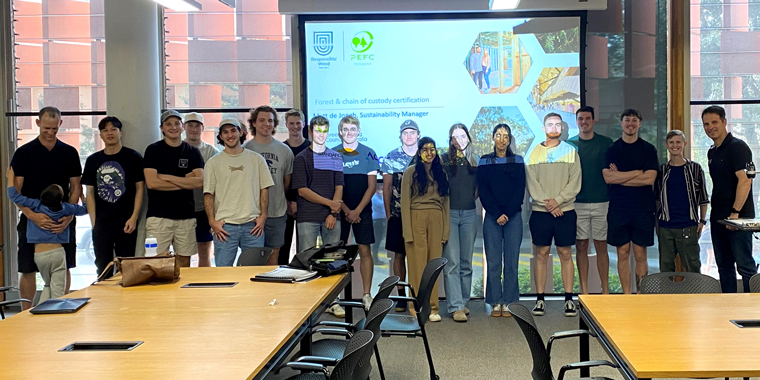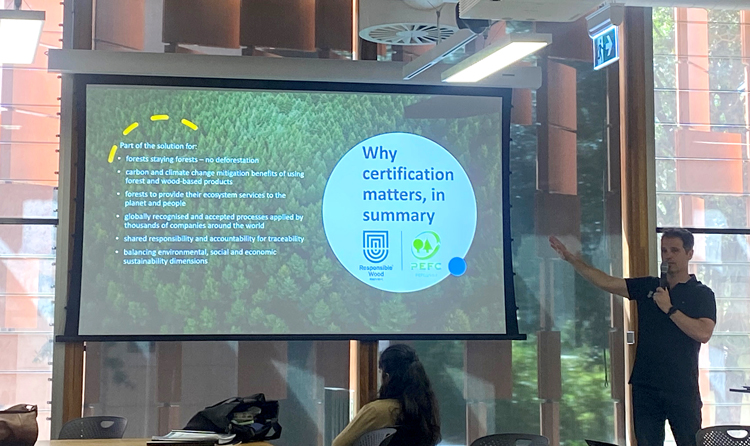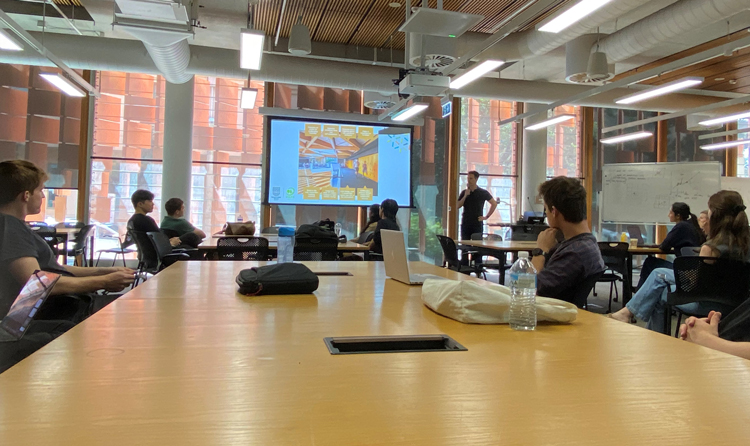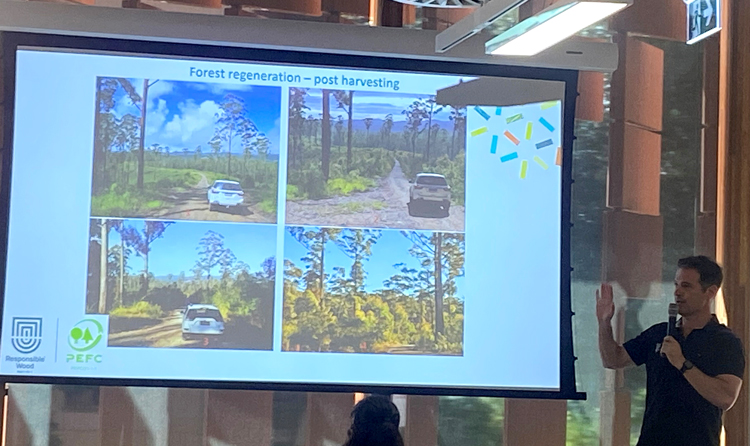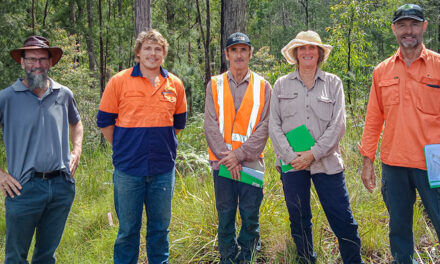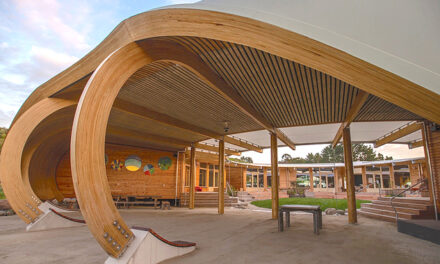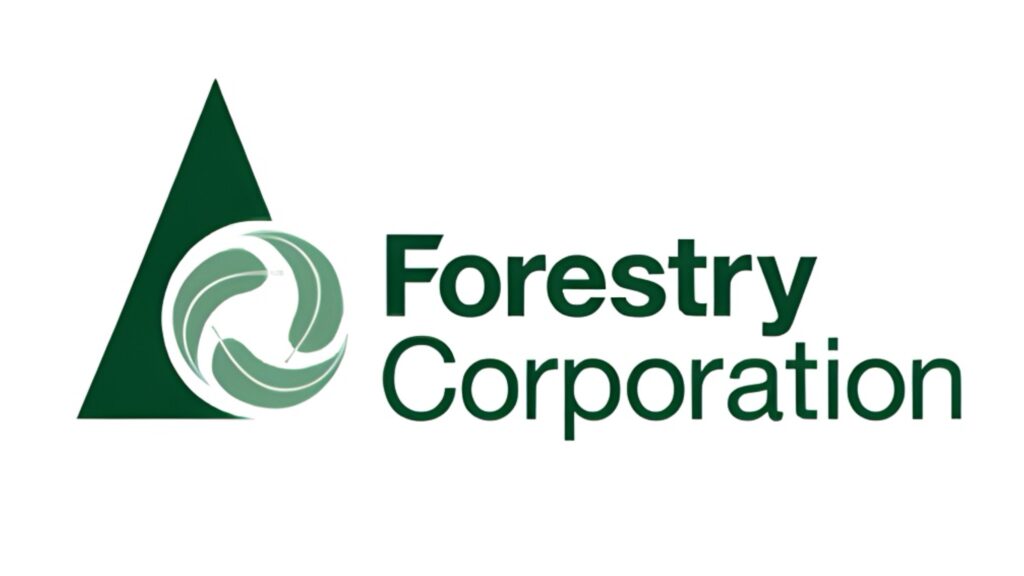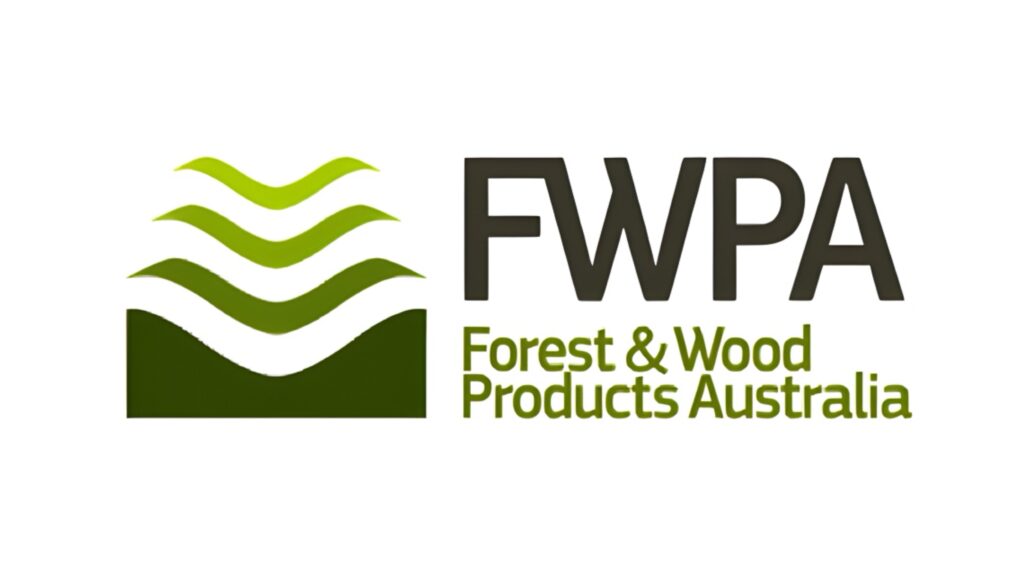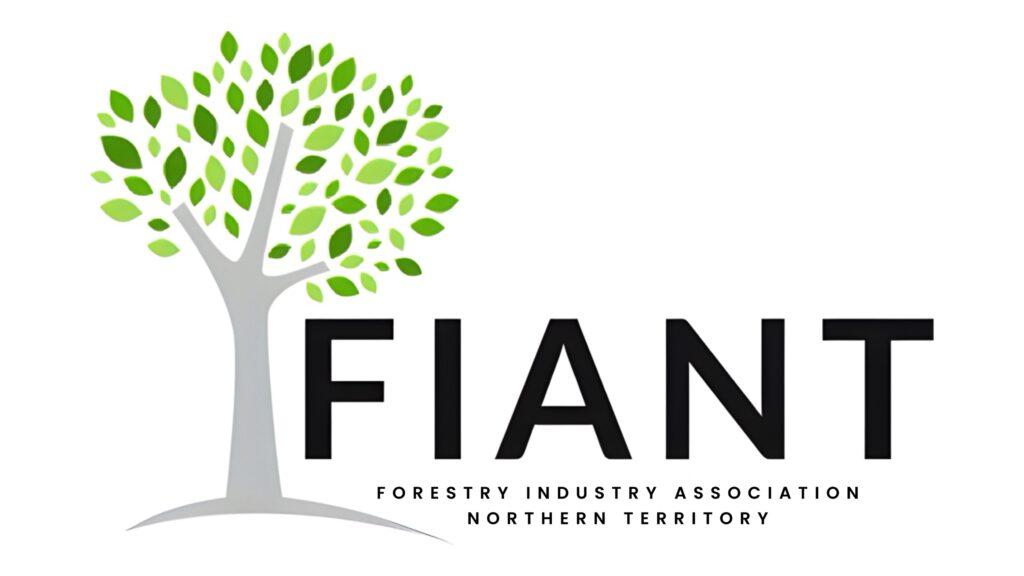CHAMPIONING SUSTAINABILITY
How engineers and specifiers are shaping the future of timber in construction.
Matt de Jongh explaining the central importance of certification for sustainable materials.
Instilling a sense of confidence around specifying timber is a key goal for the program.
Responsible Wood highlights the regrowth of harvested sustainable forests, which compares starkly with what remains after mining.
MAIN PIC: The University of Queensland School of Civil Engineering students who attended Matt de Jongh’s presentation. Images: supplied
Engineers and specifiers are increasingly crucial in driving the adoption of renewable building materials like timber, a key element in fostering a sustainable built environment.
As society grows more aware of where products come from and the pressing need for circularity, the next generation of professionals are leading the way in designing and advocating for materials that align with the United Nations Sustainable Development Goals (SDGs). Their role extends beyond selecting green, eco-friendly and low carbon materials; it involves ensuring that the entire supply chain is transparent, ethical and responsible; paving the way for a future where development and sustainability go hand in hand.
In a recent presentation to students at the University of Queensland’s School of Civil Engineering, Matt de Jongh, sustainability manager at Responsible Wood, highlighted the role that forest and chain of custody certification plays in combatting deforestation and climate change. By engaging with future industry leaders, de Jongh emphasised the importance of understanding the sourcing of forest products and the need for responsible timber use in construction.
His session outlined how informing and collaborating with the next generation helps instil well-informed values of sustainability early on, ensuring that the engineers and specifiers of tomorrow are well-equipped to champion renewable materials and support environmental resilience.
de Jongh provided an in-depth overview of how Responsible Wood, Australia’s largest forest certification scheme, works to promote sustainable forest management. He highlighted the importance of certified sustainable forest management in preserving forest ecosystems and promoting cultural and community aspects of forest management at a landscape level.
“Forests play an important role in regulating our climate, and certification is key to validating their ability to act as carbon sinks,” de Jongh said. “Certified sustainable forest management ensures that forests are not only managed responsibly but are also protected for future generations, helping us mitigate climate change and preserve biodiversity.”
During the session, the students were able to hear new perspectives on the growing importance of ethical and transparent supply chains, which are achieved through third-party accredited chain of custody certification. This certification ensures that materials sourced from certified forests can be traced through each stage of production, from the forest to the final product.
“Chain of custody certification provides a clear and verifiable link between the forest and the final product,” de Jongh said. “It’s essential for businesses to prove that their timber comes from an ethical source. Transparency is becoming increasingly important as consumers and policy makers demand more responsible supply chains.”
The presentation also touched on the challenges the world faces in tackling deforestation and climate change and how certification can be part of the solution. Matt stressed that it’s not just about managing forests for timber production, but also about creating systems that ensure accountability throughout the entire supply chain.
Dr. Lisa Ottenhaus, Senior Lecturer at the University of Queensland’s School of Civil Engineering, praised the session, emphasising its relevance to the students’ current studies and future careers. “Matt’s presentation gave our students valuable insights into the intersection of civil engineering and sustainable resource management,” said Dr. Ottenhaus. “Understanding the role of certification, like that provided by Responsible Wood, is crucial for future engineers who will be working on infrastructure projects that directly impact and depend on the environment.”
As the demand for well-credentialled, sustainable materials continues to increase, globally endorsed and nationally relevant standards, like those developed by Responsible Wood, are becoming increasingly integral in shaping future sourcing practices and procurement policies. With this eventual industry evolution, the responsibility falls on today’s engineers and specifiers to not only adopt renewable materials but also to ensure that they are sourced responsibly, through certified supply chains.
The choices made by the next generation of professionals in balancing development with supply chain transparency will undoubtedly shape the future of our forest industry.

